| 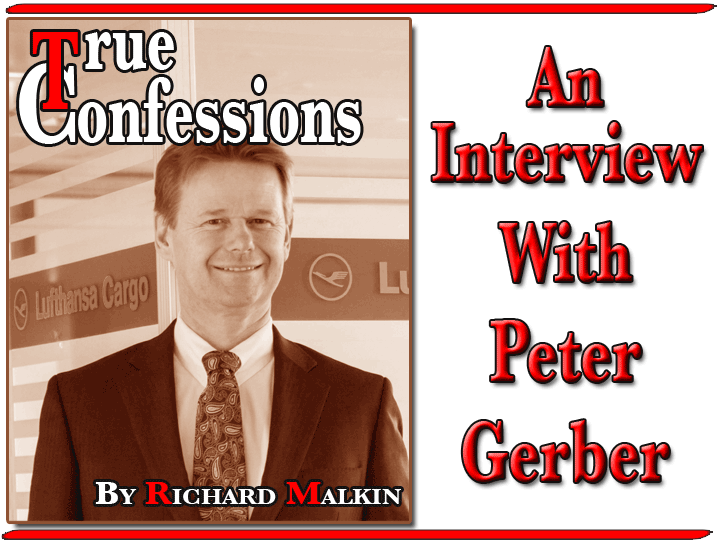
Peter Gerber assured
me that he has kerosene in his blood, which translated to a simple though
important fact: virtually the entire career of the 51-year-old CEO of
Lufthansa Cargo has been within the Lufthansa Group. The kerosene apparently
has turned out to be an effective mix, and Gerber replied to cargo-related
questions without stumbling. He gave strong evidence of a tight fix on
world markets, and the various forces of competition—and he had
ideas. Was it vital that an aspirant spend their entire career in cargo
in order to reach the uppermost rung of the ladder? Certainly not in Gerber’s
experience, who maintained that “the great thing about Lufthansa
is that it is possible to engage in completely different fields over and
over again”—and lead to a solid challenge. Admittedly, “cargo
is truly special.”
Asked for his outlook on the current year,
Gerber described it as “demanding and volatile,” but there
is some expectation of “a slight rise in demand worldwide”
and will compete to benefit from this. He expressed optimism, and was
preparing for the “benefits” in terms of investment in services
and quality.
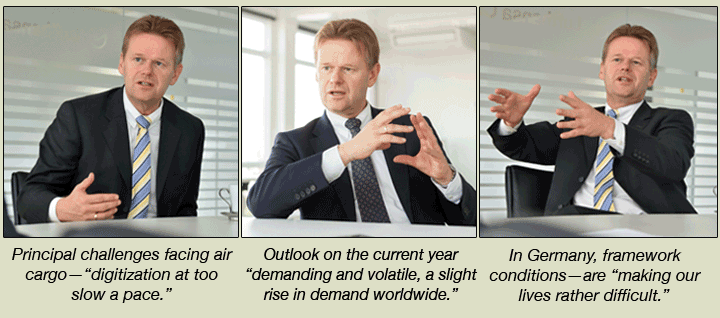
Are the levels of competition in the world’s
regional markets relatively stable, or are some subject to volatility?
Gerber declared that there were “clear imbalances” between
global regions. Some countries, he said, used aviation as a “strategic
weapon” to enhance economic development. In Germany, framework conditions—restrictive
night flights bans and emissions trading, for instance—are “making
our lives rather difficult.” Speaking for himself, Lufthansa Cargo’s
chief stated that it is of great importance to have a “level playing
field,” for the airline industry is global, which requires “level
framework conditions.”
At this point in the interview, Gerber was
asked to identify the principal challenges facing air cargo’s forward
movement. Gerber said:
“In
many cases, the industry is driving innovation and developments such as
the digitization of the most important processes at too slow a pace. We
need to become faster and, above all, cooperate even better with other
companies. And the rapidly expanding presence of the Gulf carriers is
definitely a major challenge, “especially for the established airlines
from Europe, Asia, and the U.S.”
Gerber went on to point out capacities that
are “thrown” on the market, especially the huge amount of
belly capacity, impact heavily on the markets. No longer is there a level
playing field. He charged that “massive state subsidies have led
to” distortions of competition “which should not continue
in the long run.” He was emphatic in calling for politicians to
“step in to ensure fair framework conditions.”
Narrowed to the reality of Gerber’s
top cargo office at the airline, he was asked what he considered to be
his foremost challenge. Addressing the query in terms of a management
team, he maintained that its uppermost task was to “put the customer
first in every aspect of decisionmaking” within Lufthansa Cargo—the
single approach taken to “steer” the company in to a successful
future.
Atop this effort is Gerber’s commitment
to “good and fair framework conditions.” Alongside this pursuit,
Gerber’s unfailing focus is on “implementing our strategy
program (Lufthansa Cargo 2020) with new planes, up-to-the-minute IT, digitization
of processes, innovative cooperation, etc.” In a muted burst of
enthusiasm, Gerber painted a picture of a future Lufthansa Cargo “even
more efficient and, above all, fit for coming generations.”
A native of Giessen, Germany, Peter Gerber
studied law and business management in Giessen and Hagen, and years later
completed the senior executive program at Columbia University. Joining
Lufthansa in 1992, his initial duties were in human resources and law.
Five years later, the young man was assigned to head intercompany transfer
pricing, fees, and charges, focusing on airport and air traffic control
costs and relations with the Federal state authorities.
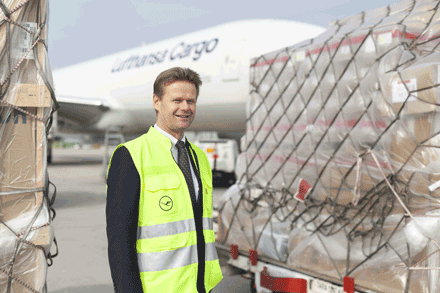 In
the period 2001-04, Gerber’s responsibilities shifted to direction
of the D-check program, which sought to consolidate corporate earnings.
During the eight years starting in 2003, he served as Lufthansa spokesman
for the Air Transport Initiative for Germany. At the same time, he was
responsible for strategic corporate development. Then came a five-year
period (2004-09) in which he headed corporate industrial relations and
social security. In
the period 2001-04, Gerber’s responsibilities shifted to direction
of the D-check program, which sought to consolidate corporate earnings.
During the eight years starting in 2003, he served as Lufthansa spokesman
for the Air Transport Initiative for Germany. At the same time, he was
responsible for strategic corporate development. Then came a five-year
period (2004-09) in which he headed corporate industrial relations and
social security.
The door to cargo opened for the first time
in 2009 when he was named to Lufthansa Cargo AG’s executive board
with responsibility for finance and human resources. Three years later
Gerber found himself on the executive board of the passenger airline,
heading human resources, IT, and Services Division. He bounced back to
the universe of air shipping with his 2014 appointment as chairman of
the executive board and CEO of Lufthansa Cargo AG, plus chairing the Supervisory
Board of Lufthansa Cityline and holding membership on the Supervisory
Board of Albatros and Fraport.
Mark Twain is not unknown in Germany, and
it was Twain who observed that “work consists of whatever a body
is obliged to do, and play consists of whatever a body is not obliged
to do.” But in Gerber’s case, time permitting, leisure translates
to sports, especially running. And, on other occasions, “a good
game of chess.”
One of Gerber’s priorities is direct
and frequent contact with the industry’s intermediaries. He strongly
conveyed the impression that this was a basic element in his job. A CEO,
he said, “can only successfully lead a company if he is always in
touch with his customers.” It is a business environment that contributes
8 percent to total company revenue.
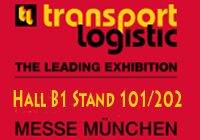 In
a discussion covering the international air cargo market, Gerber said
that tonnage was “fiercely contested. The field of competition is
marked by enormous oversupply, price dumping, and the creation of huge
fleets by, in some cases, strongly subsidized carriers.” Generating
reasonable margins is a tough occupation. Asserting that “complaining
is no strategy,” Gerber said the carrier is bearing down hard on
its strengths, investing in its product, and winning customer recognition
of Lufthansa as the “best choice.” Is this strategy working?
Its 2014 profits topped the previous year’s results by 25 percent.
Freighter and belly cargo revenues are roughly equal. In
a discussion covering the international air cargo market, Gerber said
that tonnage was “fiercely contested. The field of competition is
marked by enormous oversupply, price dumping, and the creation of huge
fleets by, in some cases, strongly subsidized carriers.” Generating
reasonable margins is a tough occupation. Asserting that “complaining
is no strategy,” Gerber said the carrier is bearing down hard on
its strengths, investing in its product, and winning customer recognition
of Lufthansa as the “best choice.” Is this strategy working?
Its 2014 profits topped the previous year’s results by 25 percent.
Freighter and belly cargo revenues are roughly equal.
Is Gerber disturbed by reports of air shippers
returning to surface modes? The airline head replied candidly: “Air
cargo is, and always will be, a market for certain goods—goods that
either need to be transported fast, or are critical for production and
have a high value. For these products air freight is and will remain the
only reasonable mode of transport.”
Do Lufthansa’s current plans include
cargo-facility activity at one or more airports? His answer was quick,
as if he had been waiting for the question. The focus is on the “home
hub, Frankfurt.” Along with other firms, have developed the Air
Cargo Community Frankfurt the objective of which is to “join forces
to strengthen Frankfurt as an air cargo hub, noted for its strategic geographical
location.”
Gerber’s voice gained in drive and
enthusiasm, stressing Germany’s high position as an exporting nation.
In his telling, Frankfurt is Europe’s No. 1 logistics hub. Gerber
ultimately was careful to point out that the airline also invests regularly
“in our infrastructure at other locations that are vital to the
airline.”
| 
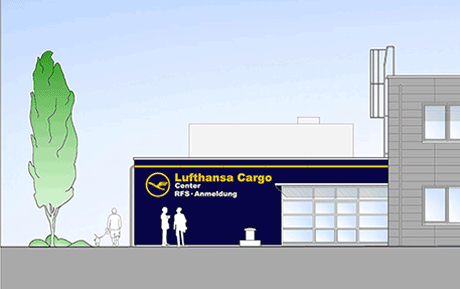 “Cargo
facilities never die, they just find another commodity.” “Cargo
facilities never die, they just find another commodity.”
All people older than an MD-88 can recall a time
when cargo facilities were not much more than former hangars used
for heavy maintenance and other tasks.
We can recall when Hangar 12 at JFK was utilized
for both air cargo and B707 C Checks back in the day.
But then came the super-air cargo terminals, like
the giant land-swallowing facility Lufthansa operates at Frankfurt,
which opened in 1982.
Well the planners that created Lufthansa Cargo’s
Frankfurt facility must have done something right because apparently
the venerable set up is okay to operate into the future; an expected
move to build a new cargo center for FRA, where 80 percent of all
Lufthansa cargo is handled, has been put on ice “for at least
two years,” as we learned last week.
But the venerable Frankfurt hub will also receive
“necessary enhancing measures” according to the announcement.
We asked Lufthansa to elaborate on the enhancements
and the reply was that news would be forthcoming.
So while the “LCCneo” plan remains
in the future as the carrier assesses the landscape and grows more
efficient in the air (having added a stable of new B777 freighters
to the fleet), positive words flow from the airline:
“Air cargo is a core business,” is
heard again and again.
“‘LCCneo’ is a significant building
block of our ‘Lufthansa Cargo 2020’ strategy for the
future,” said Peter Gerber, chairman of the Lufthansa Cargo
AG executive board, while pointing to some pluses.
“Five modern Boeing 777 freighters already
fly for Lufthansa Cargo, the modernization of our IT for handling
will be completed this year, and we are excited about our close
cooperation with ANA Cargo on routes between Japan and Europe,”
Mr. Gerber said.
We recall a retrofit Lufthansa applied in Frankfurt
just a couple years back that modernized their cool handling facility
(see video), so as they say: “There is life in the old girl
yet.”
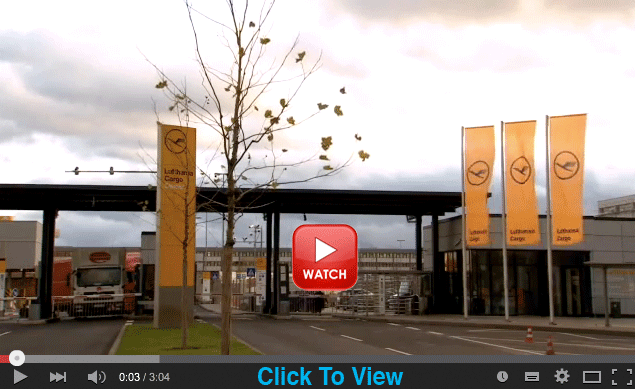
From our vantage point, the ways things happen
in the airline business can often not only fill the bill, but also
exceed the need.
Take the MD 88s mentioned above.
Although the last one was delivered in 1994 and
more than 1,100 of the last variant of the DC-9 was supposed to
disappear by now, some new and amazing 2015 cockpit technology refits
will now allow carriers that still fancy the airplane to continue
at least another five years.
What goes around comes around.
Geoffrey/Flossie
|
The question of cargo
security produced a somewhat lengthy statement directed at the heart of
the subject. He declared:
“The level of air cargo security has increased enormously over the
past few years, and I think it is fair to say that Lufthansa Cargo contributed
strongly to this development. Of course, it is clear that we will make
every effort to further improve our security standards wherever possible.
But it is also important to point out that additional requirements—for
example, those imposed by public authorities—must also be feasible
in practice. Unfortunately, this was not always the case in the past.”
In last year’s closing month, Lufthansa Cargo and Japan’s
biggest air carrier, All Nippon Airways, launched an air cargo joint venture
between Japan and Europe. Gerber hailed the alliance as a “great
step for our customers” who would benefit from an improved network.
Despite renewed deadlines for an industry
free of paperwork, Gerber expressed optimism that e-airwaybill will be
developed and implemented by the end of 2015.
With the reins of Lufthansa Cargo in his
hands, would he favor establishing air cargo economics as a special course
in universities or business schools? Gerber declared that “as a
company” LH is doing a great deal in “the development of young
people and supporting many university projects.” He brought forth
the example of guest lectures or assisting in the development of academic
courses. Add to the foregoing the airline’s offer to more than a
score of young people “an opportunity every year to train with Lufthansa
Cargo, frequently leading to recruitment.”
The topic brought to Gerber’s mind
his earlier years with human resources management. The development of
staff members has become “a matter close to my heart.” At
Lufthansa, he continued, there is a tradition to “fill most of our
important management positions with our own staff.”

Lufthansa Cargo US A team takes a break
from non-stop, face-to-face meetings to enjoy the cool shade of a
friendly tree in the hotel garden at the 25th Annual CNS Partnership
in Orlando, Florida, two weeks ago.
Pictured (L to R) Gabriella Galantis, Director US Midwest and Canada
at Lufthansa Cargo; Uwe Glunz, Regional Director USA West, Mexico
& Central America; Alexander Karst, Dorector Sales & Handling
USA Northeast and Mid-Atlantic; Karen Earp, Global Account Manager
Lufthansa Cargo;Gunnar Loehr, Regional Director South America Caribbean
and Florida; Achim Martinka, Vice President The Americas; Carl A.
Unger, Director USA South; Alison Ricker, Head of Global Accounts
and Ron Sanford, Global Key Account Manager The Americas. |
Traditionally in this
series of interviews, I request the interviewee identify three persons
who most influenced his career. Gerber resisted the request, holding that
in the space of the last 23 years, his many contacts and friendships in
the aviation world served to mold his professionalism. If he had to boil
the request down to a single person, “it is clearly my wife, Annette,”
with whom he has two children.
Richard Malkin
malkin101@aircargonews.com
|





